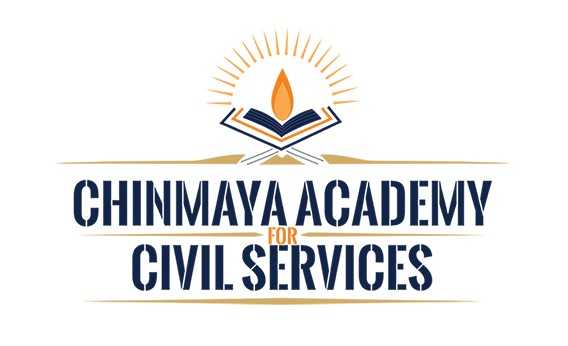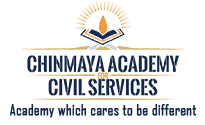The Civil Services Examination (CSE) of the Union Public Service Commission (UPSC) is comprised of three phases: the Prelims, Mains, and Interview. As part of the Mains exam, candidates must choose an optional subject, which greatly influences their ranking. Literature subjects are currently becoming more popular and successful among test-takers.
Bengali literature is an optional subject for the UPSC Mains exam. Bengali is one of the 22 official languages of India recognized in the Constitution’s 8th schedule. It boasts a rich literary heritage and a long history of original works, translations, and philosophical writing.
This article also provides a list of recommended books for UPSC Bengali Literature. The Bengali Literature Syllabus for UPSC covers two papers (I and II) in the Mains exam, each worth 250 marks and a total of 500 marks. Candidates who have previously studied Bengali or have Bengali as their mother tongue are best suited for this specialized subject. The papers must be written in Bengali script.
BENGALI
PAPER 1
History of Language and Literature.
[Answers must be written in Bengali]
Section A : Topics from the History of Bangla language
1. The chronological track from Proto Indo-European toBangla (Family tree with branches and approximate dates).
2. Historical stages of Bangla (Old, Middle, New) and their linguistic features.
3. Dialects of Bangla and their distinguishing characteristics.
4. Elements of Bangla Vocabulary.
5. Forms of Bangla Literary Prose—Sadhu and Chalit.
6. Processes of language change relevant for Bangla : Apinihiti (Anaptyxis), Abhishruti (umlaut), Murdhanyibhavan (cerebralization), Nasikyibhavan(Nasalization), Samibhavan (Assimilation), Sadrishya (Analogy), Svaragama (Vowel insertion) —Adi Svaragama, Madhya Svaragama or Svarabhakti, Antya Svaragama, Svarasangati (Vowel harmony), y—shruti and w—shruti.
7. Problems of standardization and reform of alphabet and spelling, and those of transliteration and Romanization.
8. Phonology, Morphology and Syntax of Modern Bangla. (Sounds of Modern Bangla, Conjuncts; word formations, compounds; basic sentence patterns.)
Section B : Topics from the History of Bangla Literature.
1. Periodization of Bangla Literature : Old Bangla and Middle Bangla.
2. Points of difference between modern and pre-modern Bangla Literature.
3. Roots and reasons behind the emergence of modernity in Bangla Literature.
4. Evolution of various Middle Bangla forms ; Mangal Kavyas, Vaishnava lyrics, Adapted narratives (Ramayana, Mahabharata, Bhagavata) and religious biographies.
5. Secular forms in middle Bangla literature.
6. Narrative and lyric trends in the nineteenth century Bangla poetry.
7. Development of prose.
8. Bangla dramatic literature (nineteenth century, Tagore, Post-1944 Bangla drama).
9. Tagore and post-Tagoreans.
10. Fiction, major authors : Bankimchandra, Tagore, Saratchandra, Bibhutibhusan,
Tarasankar, Manik ).
11. Women and Bangla literature : creators and created.
PAPER II
Prescribed texts for close study
[Answers must be written in Bengali]
Section A
1. Vaishnava Padavali (Calcutta University)Poems of Vidyapati, Chandidas, Jnanadas, Govindadas and Balaramdas.
2. Chandimangal Kalketu episode by Mukunda (Sahitya Akademi).
3. Chaitanya Charitamrita, Madhya Lila by Krishnadas Kaviraj (Sahitya Akademi).
4. Meghnadbadh Kavya by Madhusudan Dutta.
5. Kapalkundala by Bankimchandra Chatterjee.
6. Samya and Bangadesher Krishak by Bankimchandra Chatterjee.
7. Sonar Tari by Rabindranath Tagore.
8. Chhinnapatravali by Rabindranath Tagore.
Section B
9. Raktakarabi by Rabindranath Tagore.
10. Nabajatak by Rabindranath Tagore.
11. Grihadaha by Saratchandra Chatterjee.
12. Prabandha Samgraha, Vol. 1, by Pramatha Choudhuri.
13. Aranyak by Bibhutibhusan Banerjee.
14. Short stories by Manik Bandyopadhyay : Atashi Mami,Pragaitihasik, Holud-Pora, Sarisrip, Haraner Natjamai,Chhoto-Bokulpurer Jatri, Kustharogir Bou, Jakey Ghush
Ditey Hoy.
15. Shrestha Kavita by Jibanananda Das.
16. Jagori by Satinath Bhaduri.
17. Ebam Indrajit by Badal Sircar


